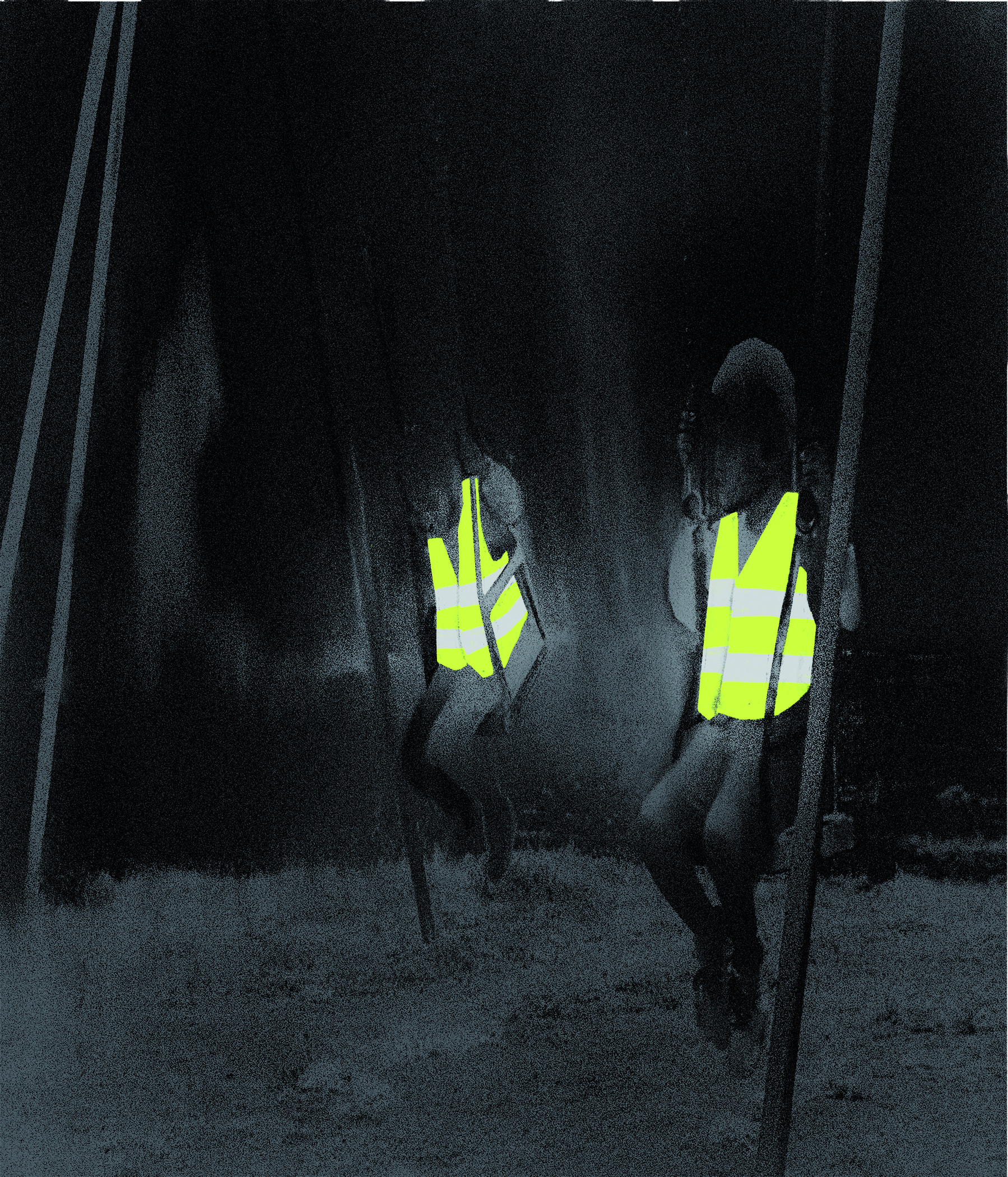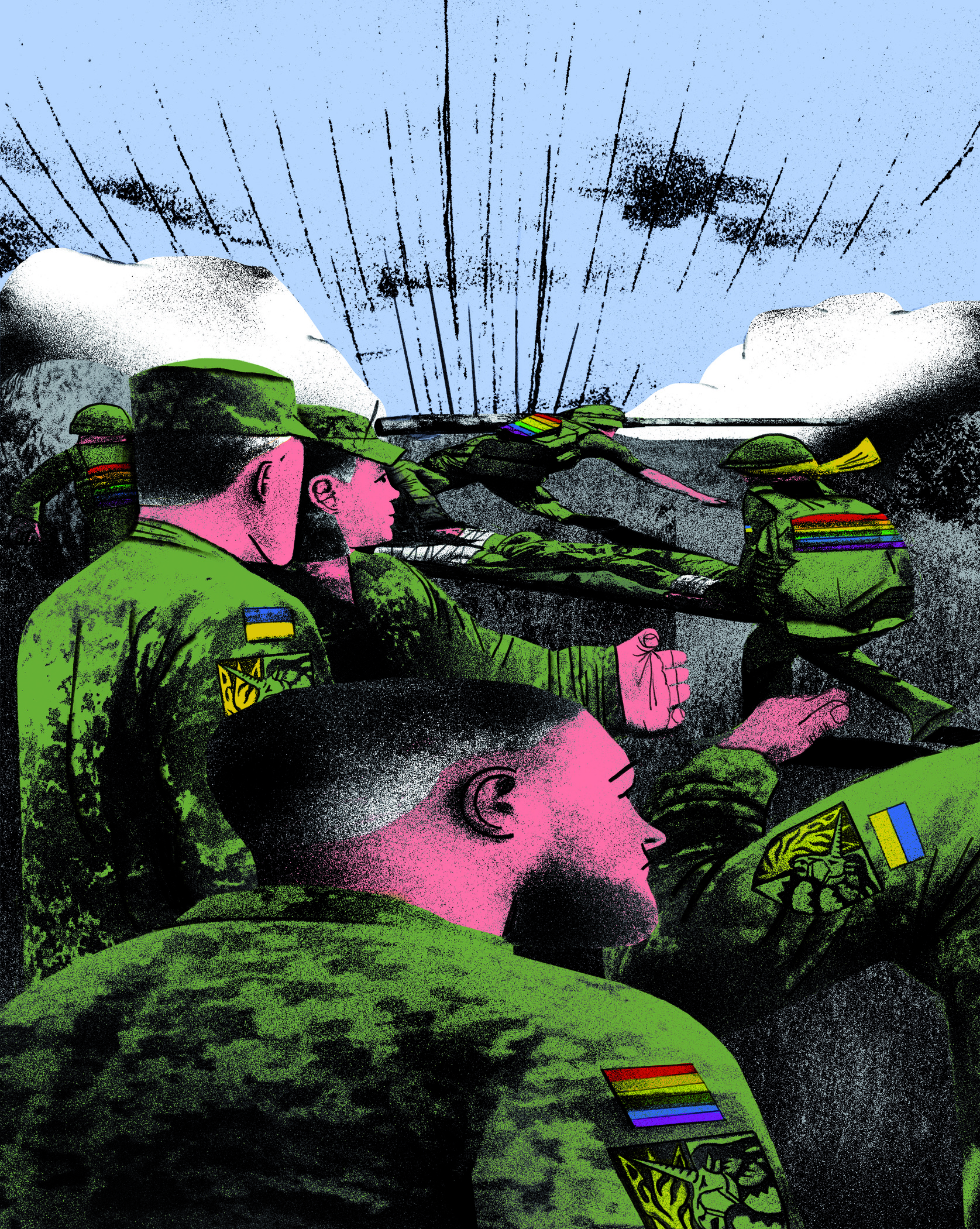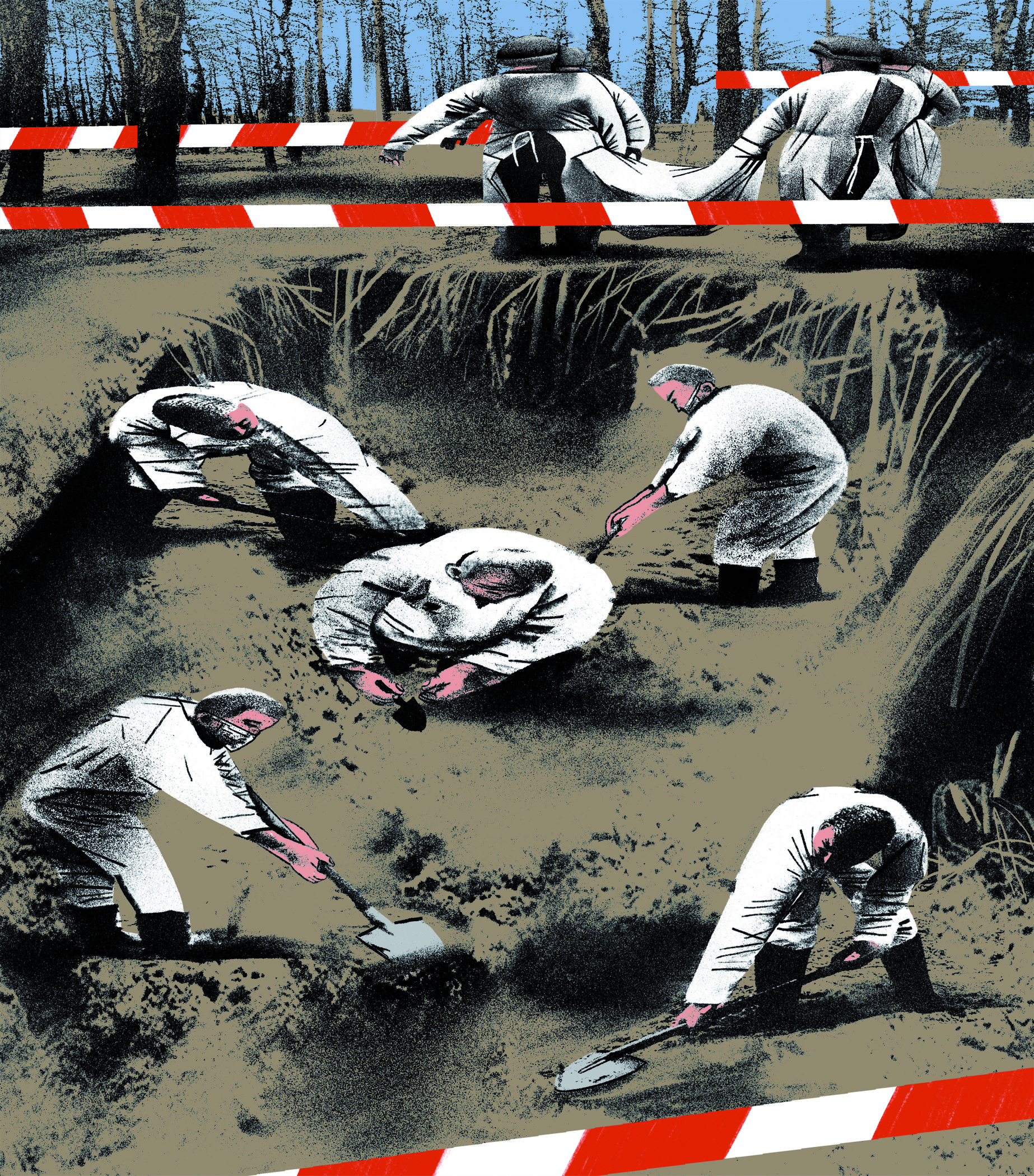Jenya Polosina
Jenya Polosina is an illustrator based in Kyiv, Ukraine, collaborating with a range of media, publishers, and NGOs, including Globe and Mail, Forbes Ukraine, UN IOM, STRAPAZIN, Hyperallergic, and LGBTQ Military. With many personal projects to her name, Jenya focuses primarily on social issues, especially those related to human rights, from investigations about torture in prisons to graphic reports from Kyiv Pride.
"Kyiv, November 1. Playground. Day 251 of the full-scale invasion. 5:30 pm. Total blackout in the Podil neighborhood."
Russians regularly shell civilian and critical infrastructure across Ukraine, which is considered a war crime. They deliberately target the national energy grid to plunge the entire country into darkness and cold and disrupt its economy. By mid-December 2022, Russia had fired over 1,000 missiles and drones at Ukraine’s energy grid. Hours-long blackouts—with no electricity, heating, and sometimes cell signal or Internet connection—have become part of everyday life. This poster shows kids on the playground in Podil, a historical neighborhood in downtown Kyiv. They wear fluorescent vests for safety, so the drivers passing by would see them.
“Around these days last year, the LGBTQ Equality March took place in Kyiv. People stood for a non-violent society, for respect and diversity, for equal rights. I believe we will be marching again next year. But today, there is a war in Ukraine—the war launched by Russia. And instead of marching, many young men and women went to fight to protect their country. I will never be tired of reminding everyone that our defenders are very different people with different identities. Part of them are @lgbtiqmilitary.”
Jenya Polosina draws attention to the issue of gender equality in the armed forces. Contrary to popular stereotypes that only men are fighting, thousands of women and LGBTQ people have joined the Ukrainian army since February 24, 2022. In particular, 50 thousand women are currently working in the military. Thirty-eight thousand of them have military professions, and 5 thousand of these are fighting on the frontline. There are no official stats on the number of LGBTQ people serving in the army. Still, Alliance Global reports that up to 10% of LGBTQ community members joined the Ukrainian army as volunteers or were drafted.
“I imagine you waking up, drinking coffee, putting on jeans and sneakers, walking the dog, catching the bus, and commuting to work. There, you put on a white costume and a medical mask and set off to dig up graves. I can see you carefully brushing, collecting, and putting together what used to be someone's life. Every day, they show a disaster movie in the news, and today it's another horror film. Probably, we all have our own movies in messaging apps, calls, and texts from our loved ones asking how we are doing out there. "There" is also different: on the front line, at the hospital, under occupation, in the town under fire. In the middle of spring, I was scared of forgetting. Now it feels so naive to think that you can actually forget it.”
This poster shows forensic experts exhuming bodies from a mass burial site. Many of these sites have been discovered in the forests and on the outskirts of villages and towns liberated from Russian occupation. Particularly horrifying was a mass grave found near Izium in the Kharkiv region where 436 bodies were exhumed, 30 of them with signs of torture. Among these Ukrainians murdered by Russians was Volodymyr Vakulenko, an award-winning poet and children’s author.



